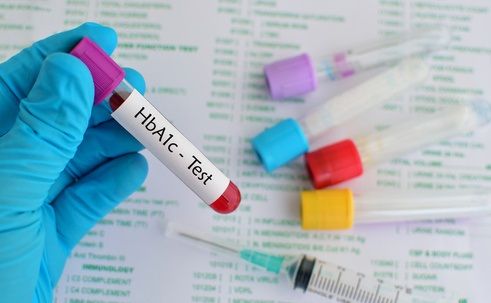Article
More Proof Bariatric Surgery also Treats Diabetes
Author(s):
In a long-term study, surgery was better than medical care alone for diabetes.

Intensive medical therapy alone for diabetes was less effective than when it was combined with bariatric surgery, a five-year study found.
Writing in the New England Journal of Medicine Philip Schauer, MD, and colleagues at the Cleveland Clinic and other institutions looked at what happened to 134 patients who had type 2 diabetes five years after either getting intensive medical therapy alone or combined with weight-loss surgery.
The patients were all either overweight or obese with body mass index (BMI) scores of 27 to 43.
Most (66%) were women. Their mean BMI was 37.
“At five years, changes from baseline observed in the gastric-bypass and sleeve-gastrectomy groups were superior to the changes seen in in the medical therapy group with respect to body weight” but also to metabolic markers of health.
The gastric bypass group had better triglycerides (-40%) compared to sleeve gastrectomy (-29%) and medical therapy alone (-5%) and also had improved LDL cholesterol levels, used less insulin, and had better scores on quality-of-life measures.
The combined medical/surgical therapies even resolved hyperglycemia in some cases, the authors noted.
They also found that patients who had gastric bypass lost more weight than patients who had the sleeve gastrectomy procedures.
There was no significant difference in ophthalmologic consequences in the three groups, but the sleeve-gastrectomy group had renal outcomes, seen in a decrease in their urinary albumin-to-creatinine ratio.
There were some adverse events in the surgery patients requiring surgical interventions. One patient in the medical therapy group died of a heart attack.
While 19% of the medical therapy group continued to gain weight excessively, none of the patients in the two surgical groups put on weight.
“More than 88% of the surgical patients had glycemic control that was considered to be very good to acceptable as measured by an average glycated hemoglobin level of 7.0% without the use of insulin,” the authors said.
The surgical groups also were less likely to need antihypertensive medications.
Though there was evidence of superiority in the gastric bypass versus sleeve procedure, the study was not designed to assess that issue and the results were not judged significant.
The findings were partially presented last year in Chicago at the American College of Cardiology meeting. The research has been funded in part by Ethicon Endo-Surgery.
The study is entitled "Bariatric Surgery Versus Intensive Medical Therapy for Diabetes--5-Year Outcomes."




